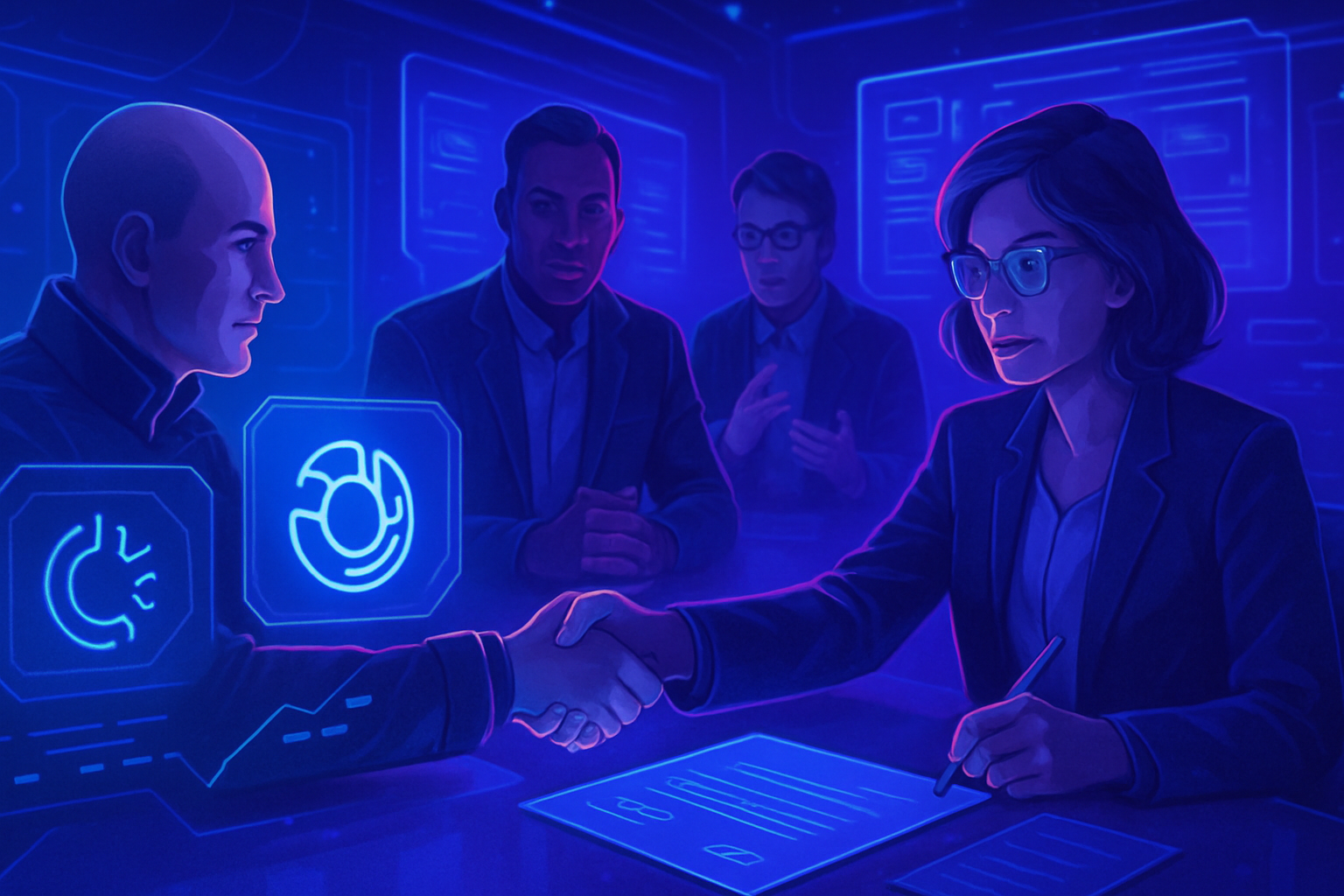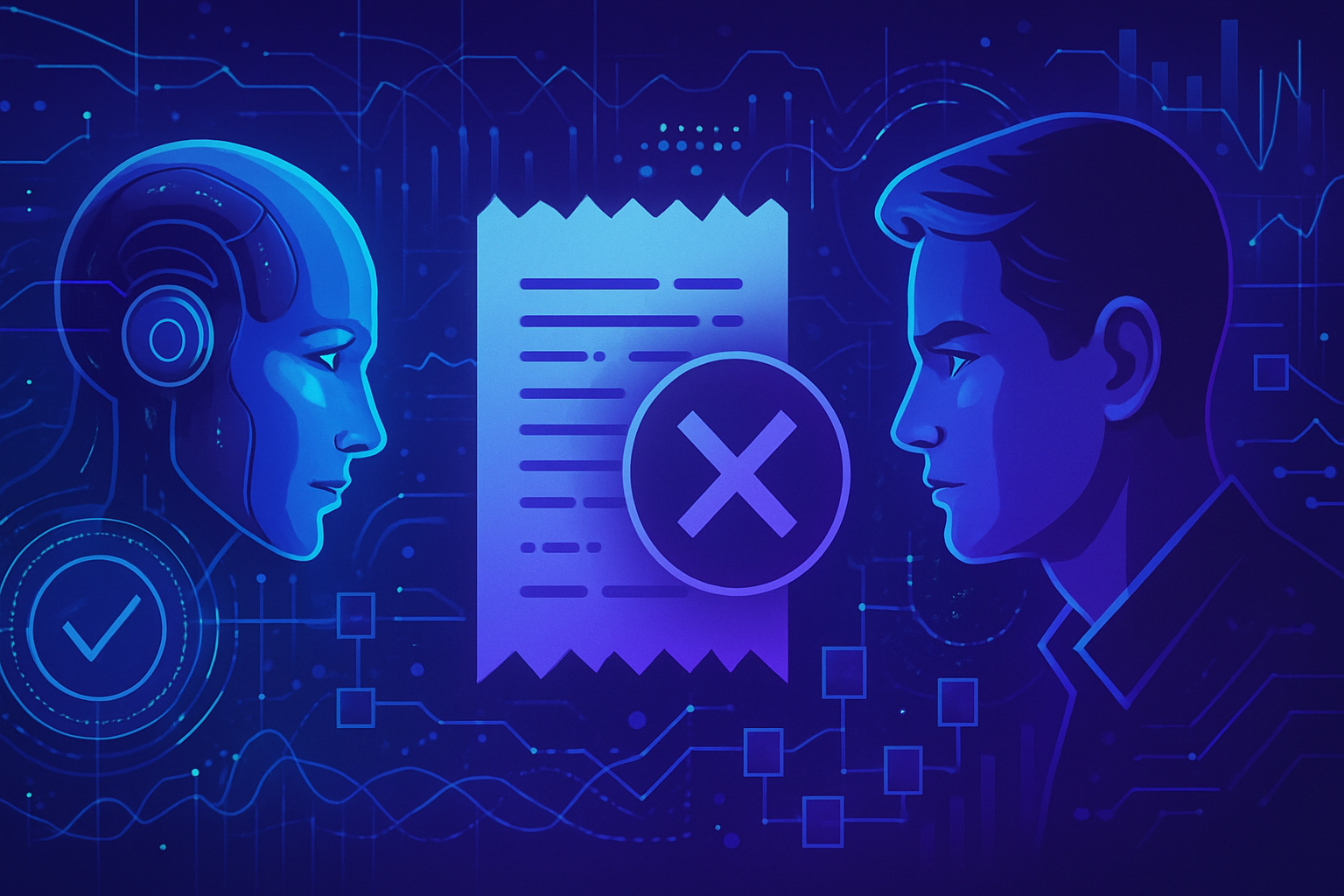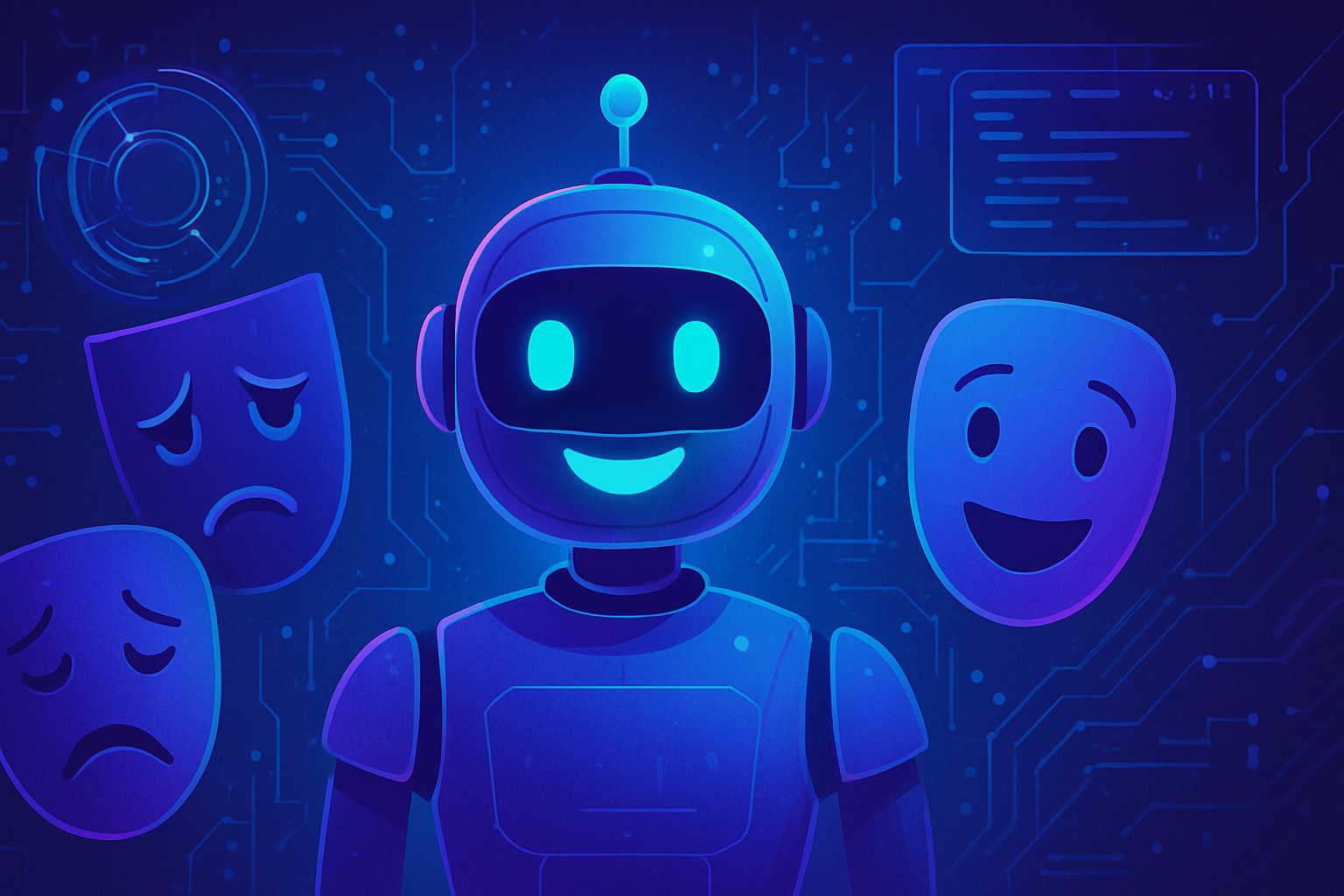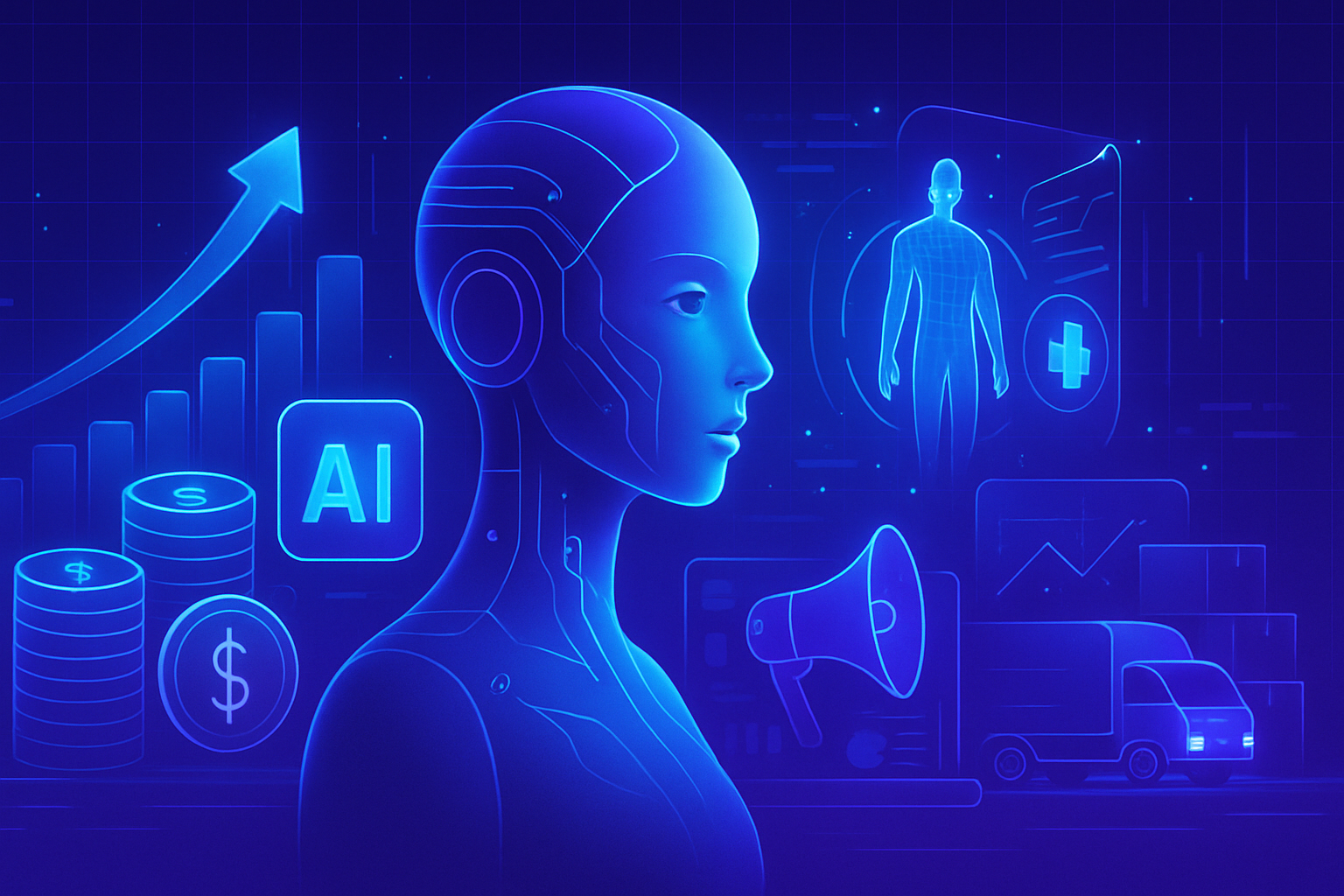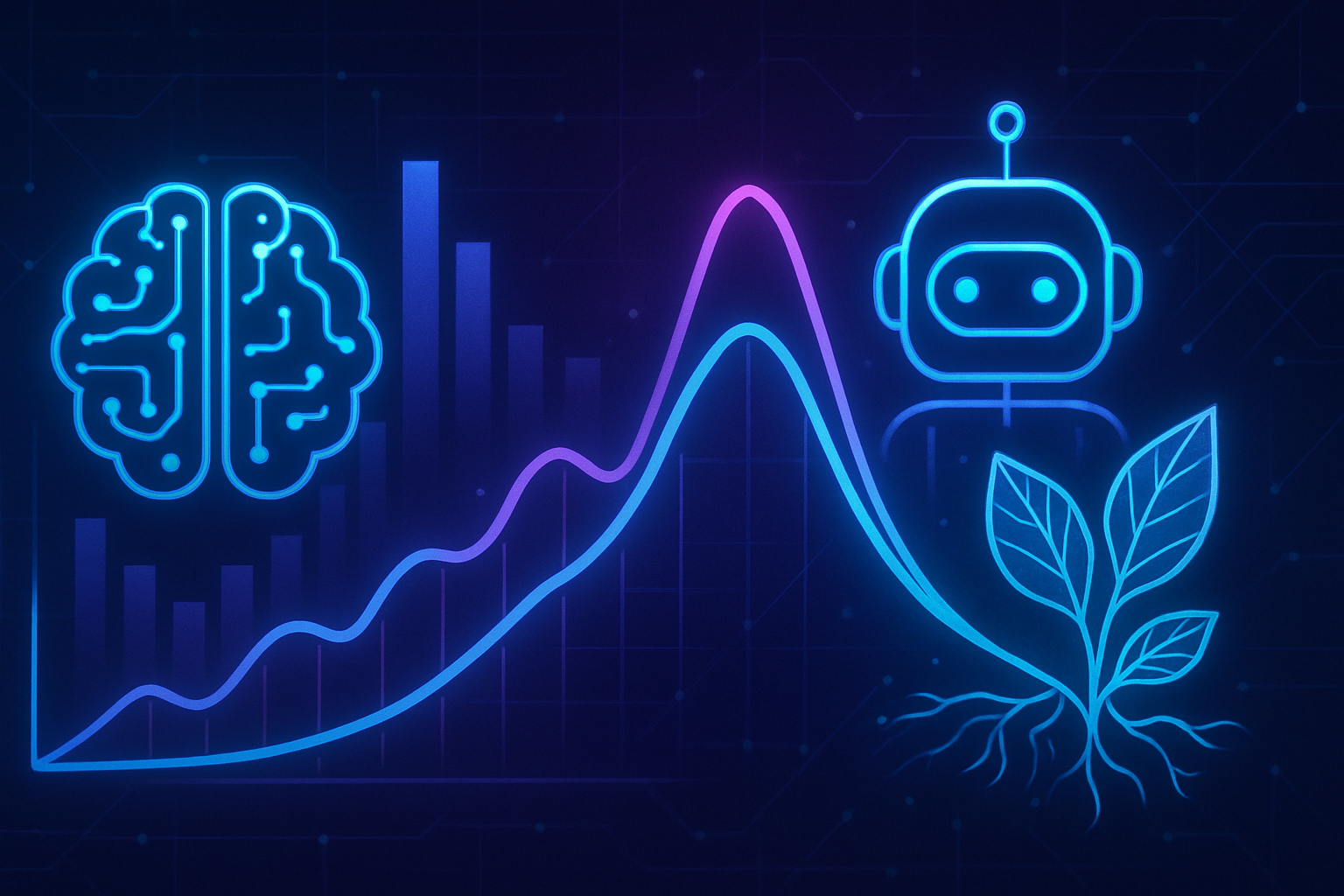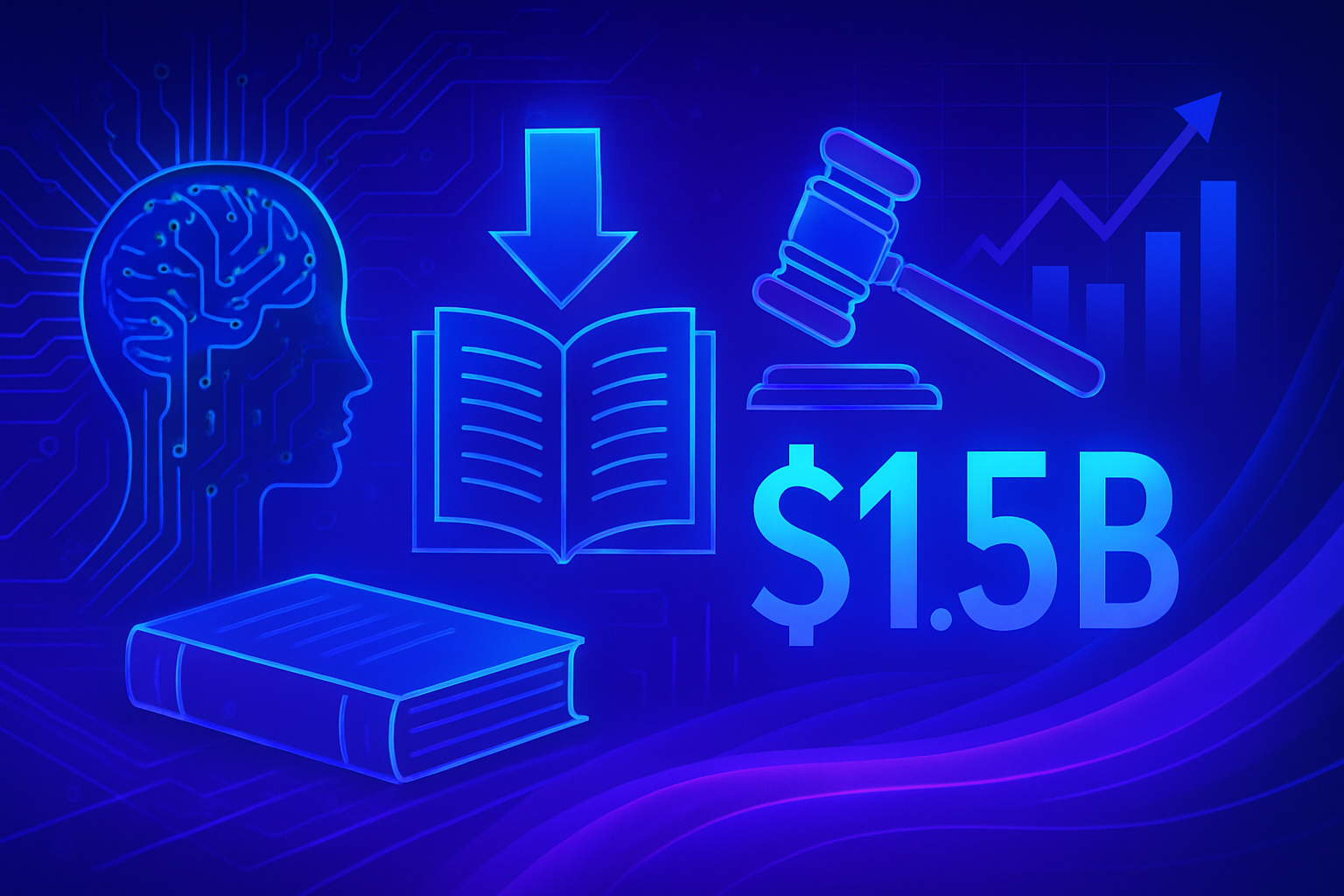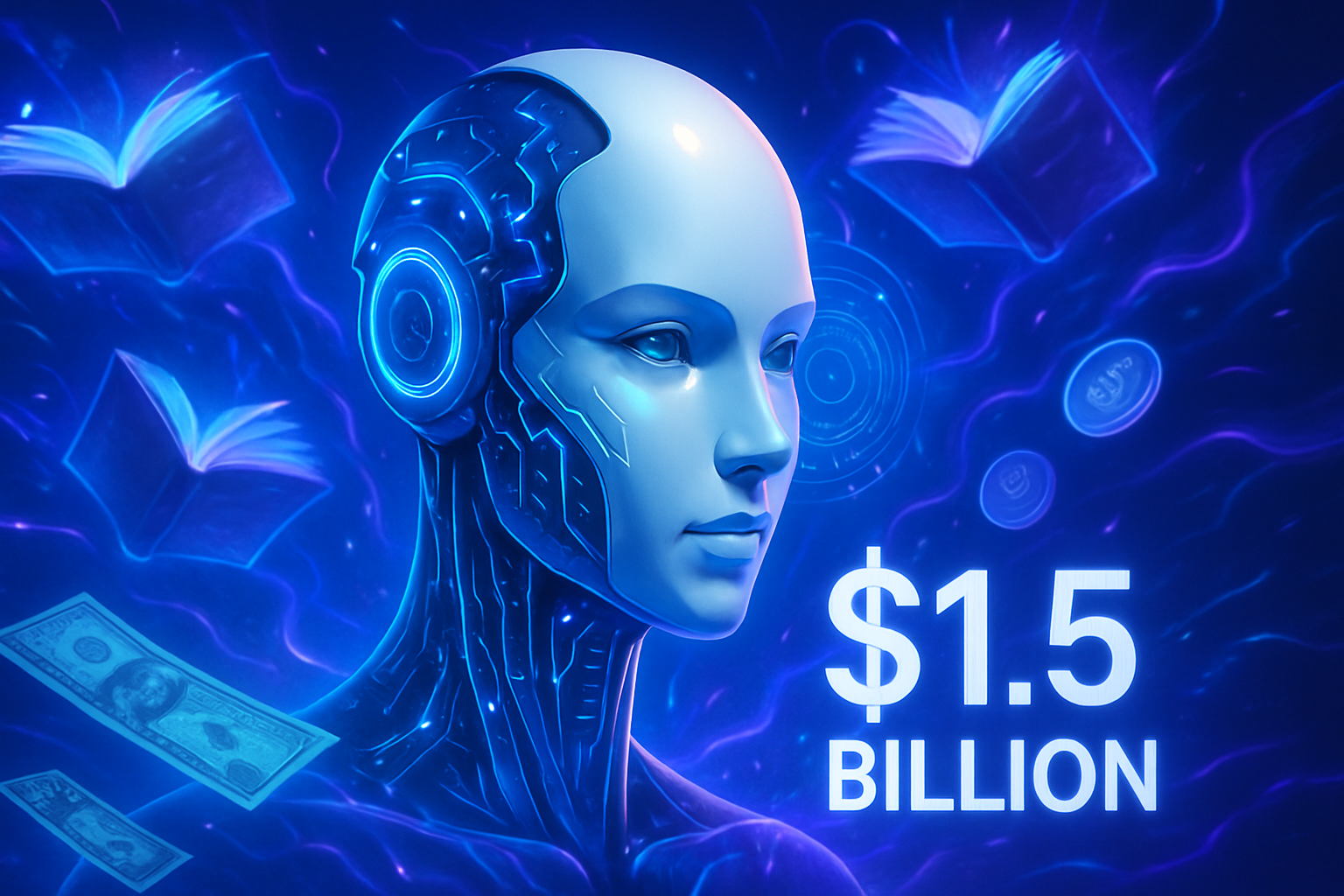The case between Anthropic and a group of authors redefines the notion of copyright in the age of artificial intelligence. The settlement of this unprecedented dispute, involving $1.5 billion, marks a significant turning point in the relationships between creators and technology companies. This historic settlement sets a precedent regarding the accountability of AI companies in the use of protected works. The judge’s decision could lead to a reevaluation of the practices of AI companies, raising important questions about the fair use of artistic works.
Unprecedented Settlement Agreement
Anthropic AI, a leading company in the field of generative artificial intelligence, has reached a $1.5 billion settlement agreement with a group of authors for copyright infringement. This settlement, which could become the largest copyright claim related to AI, aims to provide compensation to the plaintiffs involved in this class-action lawsuit. If the court approves this agreement, each author will receive approximately $3,000 for the 500,000 works involved.
Court Decisions and Legal Framework
Senior U.S. District Judge William Alsup, based in San Francisco, will review the approval of this agreement next week. This case has marked a significant milestone regarding the application of the fair use doctrine in generative AI systems. The case highlights the ongoing tensions between the creative industries and AI companies, which are often accused of using artistic works without permission to train language models.
Implications of the Settlement for the Creative Industry
The settlement agreement is seen as a turning point for AI companies that use protected works. The copyright claims raised by the authors aimed to establish precedents. The lawyers involved in this case predict that this agreement will facilitate the emergence of a market-based licensing system for the training data needed for AI models. The settlement asserts that it could encourage a more balanced relationship between creators and technology companies.
Context of the Case
This case was brought to court by authors such as Andrea Bartz, Charles Graeber, and Kirk Wallace Johnson, who alleged that Anthropic AI used content from millions of digitized books without permission to train its chatbot model, Claude. The plaintiffs claimed that the company had “hacked” their works instead of requesting the necessary permissions and compensating the creators for the use of their work.
Reactions from the Creative Community
The authors’ community has welcomed this settlement as a historic step. Mary Rasenberger, CEO of Authors Guild, stated that this agreement is essential for recognizing that AI companies must respect authors’ rights. Voices within the Copyright Alliance, such as its president Keith Kupferschmid, confirm that AI companies can finance copyright without hindering their innovation.
State of the Legal Landscape of AI
Despite this agreement, copyright litigation in the AI sector is far from resolved. Numerous lawsuits continue to emerge, with well-known authors, including Ta-Nehisi Coates and Sarah Silverman, filing actions against various technology companies. The struggle for the protection of creative works in the face of AI advancement remains current, as evidenced by Warner Bros. Discovery’s recent lawsuit against Midjourney for copyright infringement.
Financing and Future of Anthropic AI
Anthropic AI has the necessary resources to meet this compensation. The company recently announced the completion of a $13 billion funding round, valuing its company at $183 billion. This comfortable financial situation will enable Anthropic to continue its development while being more respectful of copyright in its future innovations.
FAQ about the Agreement between Anthropic and Authors Regarding AI-Related Copyright Infringement
What is the agreement made between Anthropic and the authors?
The agreement involves a $1.5 billion settlement between Anthropic AI and a group of authors, following allegations of copyright infringement regarding the unauthorized use of books to train AI models.
Why is this agreement considered a precedent in the field of copyright related to AI?
This agreement marks an important turning point as it establishes a framework where AI companies will now have to compensate authors for using their works, thereby strengthening copyright protection in the digital age.
How much money will the authors receive through this settlement?
Each author involved in the agreement will receive approximately $3,000 for each of the 500,000 books covered by the settlement, totaling a significant amount for the affected creators.
What are the implications of this agreement for AI companies in the future?
AI companies will need to obtain rights to use protected works to train their models, which could lead to the establishment of fairer and more sustainable licensing systems.
What role did Judge William Alsup play in this case?
Judge William Alsup oversaw the case and ruled on aspects of the fair use of content, concluding that certain practices of Anthropic were acceptable, but the use of millions of pirated books needed to go to trial.
What types of books were involved in this case?
The complaint mentions that millions of digitized books, protected by copyright, were used without permission, including specific works by the plaintiff authors.
How does this agreement affect authors’ rights in the future?
This case could encourage other authors to assert their rights and promote more respectful usage practices in the AI industry, fostering a balance between innovation and creative recognition.
Are there other similar cases ongoing regarding copyright violations related to AI?
Yes, several other authors have already filed similar lawsuits against AI companies, highlighting a growing concern about the protection of creative work in the context of technological advancements.
What are the reactions of the creative community regarding this agreement?
The creative community has largely welcomed this agreement as a significant step forward, asserting that it recognizes authors’ rights to be compensated and to control the use of their works by AI companies.
